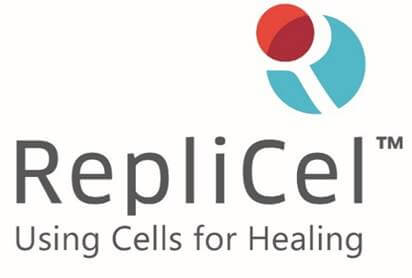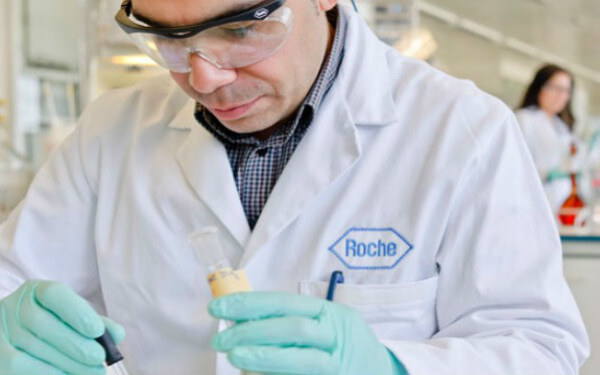
RepliCel Life Sciences Inc (TSXV:RP)
RepliCel is a regenerative medicine company developing autologous cell therapies that address diseases caused by a deficit of healthy cells required for normal healing and function.

Swiss Pharma giant Roche expanded its presence in China with the approval of its lung cancer drug, Alecesna. Roche said the medication was approved by the China National Drug Administration (CNDA) under a priority review.
In China, Alecensa (alectinib) was approved as a monotherapy for patients with anaplastic lymphoma kinase (ALK)-positive, advanced non-small cell lung cancer (NSCLC). The Chinese approval came nine months after the U.S.Food and Drug Administration (FDA) approved Alecensa in the United States, and eight months after the European Medicines Agency (EMA)approved it in Europe.
Roche Chief Medical Officer Sandra Horning said the approval of Alecensa “marks a new era for ALK-positive lung cancer patients in China.” Those patients have a new treatment option that provides a “meaningful, sustained benefit, in comparison with the previous standard of care available,” added Horning, who is also head of global product development for Roche.
Horning also noted that the quick approval of Alecensa in China marked a significant change in the way that nation’s regulatory agency is looking at drug approvals.
“It… represents a significant regulatory shift, with the approval received under unprecedented timelines. We are proud to be at the forefront of healthcare innovation in China by helping to bring Alecensa to patients as quickly as possible,” Horning said in a statement.
Reuters reported that Roche’s Chinese presence is “modest but increasing in importance.” The company’s revenue grew 9 percent in the first six months of 2018, Reuters said.
The approval of Alecensa in China is an important one for that nation, as lung cancer rates continue to rise there. It is the most commonly diagnosed cancer type, Roche noted in its announcement. NSCLC is the most common form of lung cancer in China and the ALK-positive form of the disease is often diagnosed in younger patients, Roche noted. About 5 percent of NSCLC patients are ALK-positive, Roche added. Lung cancer is the leading cause of cancer-related deaths in China.
Oncology drugmakers continue to look at China as a significant market for medications. There are approximately 700,000 new cases of cancer diagnosed in China annually. China has about one-third of new cancer patients in the world, BioSpace has noted in past articles. With the growth of cancer patients in China, that country has seen a rise in the number of CAR-T treatments aimed at that market.
In June, the CNDA approved Bristol-Myers Squibb’s Opdivo as a treatment for patients with previously treated NSCLC. That was a significant step in China. The approval makes Opdivo the first PD-1 inhibitor approved in China. BMS Chief Commercial Officer Murdo Gordon said at the time of the approval that Opdivo, now approved in more than 60 countries, is a “global standard of care for previously treated NSCLC.”
Chinese officials quickly approved a second PD-1 inhibitor, though. In July Merck snagged approval for its blockbuster checkpoint inhibitor Keytruda as a treatment for patients with advanced melanoma. Joseph Romanelli, president of MSD China, said in July that the approval of Keytruda “reflects the Chinese government’s strong commitment to expedite the introduction of innovative therapies to Chinese patients.”
While there are numerous western-developed cancer treatments now available in China, the issue of cost and drug availability has been a hurdle for patients. Chinese news agency XinhuaNet reported in July that the government has introduced policies to address the issue. XinhuaNetreported that the government has lifted tariffs on many imported drugs, including cancer treatments, which has helped reduce the price burden for patients in that country.
Source: Biospace